Provider Credentialing
Provider credentialing is the process of verifying and evaluating the qualifications and experience of healthcare providers. This is an important step in ensuring that healthcare professionals are qualified to provide quality care to patients. Credentialing involves gathering information about a provider's education, training, licenses, certifications, and other professional qualifications. This information is then verified to ensure that the provider meets the standards of the healthcare organization or insurance company.
Insurance Credentialing
- Provider credentialing is the process of verifying and evaluating the qualifications and experience of healthcare providers.
- This process is important in ensuring that healthcare professionals are qualified to provide quality care to patients.
- Information gathered during provider credentialing includes a provider’s education, training, licenses, certifications, and other professional qualifications.
- Provider credentialing is typically performed by healthcare organizations or insurance companies.

Pre-Encounter Services
- Preauthorization/Prior Certification
- Federal, State, and Commercial Payers
- Insurance Eligibility/Benefits Verification – Basic and Advanced Verification through Web Portals and Calls
- Physician Credentialing – Medicare, Medicaid, Commercials, and Worker’s Compensation
- Medical Record Review/Code Abstraction/Chart Summarization – Summary of Past Medical Records
Post-Encounter Billing Services
- –Coding: ICD 10, CPT, HCPCS, CDT
- Coding Review: HCC, DRG, HEDIS
- Charge Entry
- ERA/EOB Posting and Reconciliation
- Automated Claim Status Services
- Insurance AR Follow–up, Denials, Appeals
- Prior AR Evaluation, Re–filing, Appeals, Completion

Process of Provider Credentialing
Provider credentialing is a critical step in ensuring that patients receive quality care from qualified healthcare professionals. This process involves gathering information about a provider’s education, training, licenses, certifications, and other professional qualifications. This information is then verified to ensure that the provider meets the standards of the healthcare organization or insurance company.
By performing provider credentialing, healthcare organizations and insurance companies can protect patients from receiving care from unqualified providers. This helps to ensure that patients receive the best possible care and can have confidence in their healthcare providers.
Provider credentialing is typically performed by healthcare organizations or insurance companies. These organizations have established standards and guidelines that healthcare professionals must meet in order to be credentialed. By following these guidelines, healthcare organizations and insurance companies can ensure that their providers meet the highest standards of care.
In conclusion, provider credentialing is an essential process in ensuring that patients receive quality care from qualified healthcare professionals. By gathering and verifying information about a provider’s qualifications and experience, healthcare organizations and insurance companies can protect patients and ensure that they receive the best possible care.
Professional Skills
We Have 50+ Winning Awards

Don’t Be Hesitate To
Contact Us
A one-window solution to managing the end-to-end revenue cycle
Book a demo
Call Us: 630-643-1972
84k+
Happy Clents
Our Response To Your Quick Queries
Get Your General Answer
Provider credentialing is typically performed by healthcare organizations or insurance companies.
Information collected during provider credentialing includes a provider’s education, training, licenses, certifications, and other professional qualifications.

